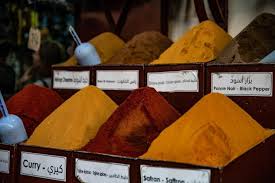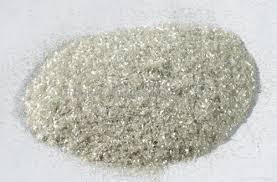![]()
If you’ve landed on this article page, you’re probably searching for a
good business idea—an idea that’s light on the pocket but heavy on
returns, promising both a fulfilling journey and potential profit.
|
How To Start A Lucrative Mica Powder Production and Supply
Business In Nigeria
Mica powder is a fine, silky, and non-toxic mineral powder that
is used in various industries such as cosmetics, paint,
plastics, and construction for its shimmering and reflective
properties.
The mica powder industry in Nigeria and Africa is a burgeoning
sector that has garnered attention due to the increasing demand
for natural minerals in various applications, including
cosmetics, paints, plastics, and construction materials. Mica, a
silicate mineral known for its unique properties such as
flexibility, thermal resistance, and electrical insulation, is
primarily sourced from mining operations. In Nigeria, the
mineral is found in several states, including Kogi, Ekiti, and
Osun, where artisanal mining practices have been prevalent.
In Nigeria, the lack of formalized mining operations has led to
a fragmented market where small-scale miners dominate. This
presents both opportunities and challenges for entrepreneurs
looking to enter the mica powder production business.
Understanding the dynamics of this industry is crucial for
anyone aiming to establish a successful venture in this field.
Key Takeaways
The mica powder industry in Nigeria and Africa is a growing
market with increasing demand for various applications such as
cosmetics, automotive, and construction.
Researching the market and identifying target customers is
crucial for understanding the specific needs and preferences of
different industries and consumer segments.
Sourcing raw materials and equipment for mica powder production
can be challenging, but establishing reliable supply chains is
essential for consistent quality and production.
Quality control and testing procedures are essential for
ensuring the purity, consistency, and safety of mica powder
products, and are important for building trust with customers.
Understanding Industry Sectors: The first step involves
analyzing the various sectors that utilize mica powder, such as
cosmetics, automotive, construction, and electronics. Each of
these sectors has distinct requirements regarding the quality
and specifications of mica powder.
Identifying Target Customers
For instance, the cosmetics industry demands high-purity mica
that is free from contaminants to ensure safety and compliance
with health regulations. In contrast, the construction sector
may prioritize cost-effectiveness and bulk availability.
Identifying target customers also involves segmenting the market
based on geographical regions and consumer preferences.
In Nigeria, there is a growing trend towards natural and organic
products, particularly among urban consumers who are
increasingly aware of the benefits of using non-toxic materials.
This shift presents an opportunity for mica powder producers to
cater to local cosmetic manufacturers who are seeking
sustainable sourcing options. Additionally, exploring export
opportunities to international markets can further enhance
business prospects. Engaging with potential customers through
surveys, interviews, and industry events can provide valuable
insights into their purchasing behavior and preferences.
Setting Up Your Mica Powder Production Facility
Establishing a mica powder production facility requires careful
planning and consideration of various factors. The first step is
to select an appropriate location that is strategically
positioned near raw material sources and has access to essential
infrastructure such as transportation networks and utilities.
The facility should be designed to accommodate different stages
of production, including crushing, grinding, and packaging
processes.
It is crucial to invest in modern machinery that can efficiently
process raw mica into fine powder while maintaining quality
standards. In addition to physical infrastructure, creating a
skilled workforce is vital for the success of the production
facility. Training programs should be implemented to ensure that
employees are well-versed in operating machinery safely and
adhering to quality control measures.
Furthermore, establishing standard operating procedures (SOPs)
will help streamline production processes and minimize errors.
Compliance with health and safety regulations is paramount;
therefore, implementing safety protocols will protect workers
and enhance overall productivity.
Sourcing Raw Materials and Equipment
Sourcing high-quality raw materials is a critical component of
mica powder production. In Nigeria, mica is primarily obtained
through artisanal mining practices, which can vary significantly
in terms of quality and purity. Establishing relationships with
reliable local miners or cooperatives can ensure a consistent
supply of raw mica that meets production standards.
It may also be beneficial to explore partnerships with mining
companies that adhere to ethical sourcing practices to mitigate
risks associated with unregulated mining. In addition to raw
materials, procuring the right equipment is essential for
efficient production. The machinery required for mica processing
includes crushers, grinders, classifiers, and packaging
machines.
Investing in advanced technology can enhance production
efficiency and reduce waste. It is advisable to conduct thorough
research on equipment suppliers to find those that offer
reliable machinery with good after-sales support. Additionally,
considering the environmental impact of production processes is
important; therefore, investing in eco-friendly technologies can
improve sustainability while appealing to environmentally
conscious consumers.
Quality Control and Testing Procedures
Implementing robust quality control measures is vital for
ensuring that the mica powder produced meets industry standards
and customer expectations. Establishing a dedicated quality
control team responsible for monitoring every stage of
production can help identify potential issues early on. This
team should develop comprehensive testing procedures that assess
various parameters such as particle size distribution, purity
levels, and moisture content.
Regular testing of raw materials before processing is essential
to ensure that only high-quality mica enters the production
line. Additionally, conducting in-process inspections during
grinding and packaging can help maintain consistency in product
quality. Collaborating with accredited laboratories for
third-party testing can further validate product quality and
provide customers with confidence in the safety and efficacy of
the mica powder being supplied.
Developing a Marketing and Distribution Strategy
A well-defined marketing and distribution strategy is crucial
for successfully launching a mica powder business in Nigeria.
The first step involves creating a strong brand identity that
resonates with target customers. This includes developing a
compelling value proposition that highlights the unique benefits
of your mica powder products, such as purity, sustainability, or
versatility across different applications.
Digital marketing strategies can play a significant role in
reaching potential customers effectively. Utilizing social media
platforms, search engine optimization (SEO), and content
marketing can help create awareness about your products while
engaging with your audience. Additionally, attending trade shows
and industry conferences can provide valuable networking
opportunities to connect with potential buyers and distributors.
Distribution channels should be carefully selected based on
target markets. For local sales, establishing partnerships with
cosmetic manufacturers or retailers can facilitate direct access
to consumers. For international markets, exploring e-commerce
platforms or collaborating with export agents can broaden market
reach.
Ensuring timely delivery and efficient logistics will enhance
customer satisfaction and foster long-term relationships.
Scaling Up and Expanding Your Business in the Mica Powder
Industry
Once a solid foundation has been established in the mica powder
industry, scaling up operations becomes a viable goal for
growth-oriented entrepreneurs. This may involve increasing
production capacity by investing in additional machinery or
expanding the facility to accommodate higher output levels.
Diversifying product offerings by exploring different grades or
formulations of mica powder can also attract new customer
segments.
Navigating the mica powder industry in Nigeria requires a
comprehensive understanding of market dynamics, regulatory
frameworks, and operational best practices. By focusing on
quality control, effective marketing strategies, and sustainable
sourcing methods, entrepreneurs can establish successful
ventures that contribute positively to both local economies and
global supply chains.
Get our Practical Training guide on How to set up a Mica Powder
food production Business in Nigeria. The Mica Powder
business plan provides a
detailed roadmap for entrepreneurs seeking to dive into the Mica
industry in Nigeria. The plan offers an in-depth analysis of
essential commercial elements, equipping you with actionable
insights to build a robust foundation for your venture. It
meticulously explores the nuances of your business idea and
considers the local market dynamics, competitive landscape, and
the driving forces behind market growth.
|







